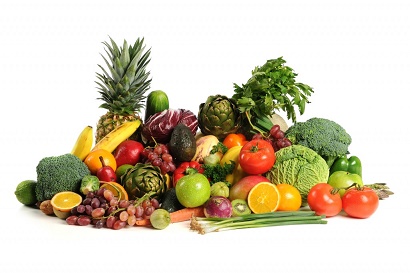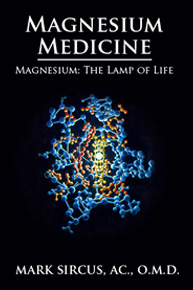 The study showed a dramatic decline in death from heart disease among the men with the highest vitamin C intake, especially among those who took a vitamin C supplement.And vitamin C, like vitamin E, has another benefit that we’ve only discovered recently, but which could be one of the reasons these antioxidants help you live better for longer. Raising the level of vitamin C in the cells could slow down the shortening of telomeres up to 62%.
The study showed a dramatic decline in death from heart disease among the men with the highest vitamin C intake, especially among those who took a vitamin C supplement.And vitamin C, like vitamin E, has another benefit that we’ve only discovered recently, but which could be one of the reasons these antioxidants help you live better for longer. Raising the level of vitamin C in the cells could slow down the shortening of telomeres up to 62%.
A landmark study from a university in Nebraska found that vitamin D has the potential to lower the risk of all cancers in women by 77 percent.One study gave over 1,000 people either vitamin B3 (niacin) or a placebo and followed them for 15 years. 10 years after the end of the trial, doctors followed up and found that niacin had reduced the people’s chance of dying from any cause by 11%.In a study on the mineral selenium done at Harvard, the men who had the most selenium saw their prostate cancer risk dropped by 50%. Recent research shows that people who get the least amount of magnesium have a 50% higher risk for heart problems.
Vit. A (rentinol in animal foods, beta-carotene in plant foods)
 Essential for vision, bone growth and skin and tissue repair. Beta-cartene acts as an antioxidant and protects the immune system.
Essential for vision, bone growth and skin and tissue repair. Beta-cartene acts as an antioxidant and protects the immune system. Best Sources:
Milk, butter, cheese, egg yolks and margarine, carrots, apricots, squash, red (bell) peppers, broccoli, green leafy vegetables, mango and sweet potatoes.
Vit. B1(thiamin)
 Essential for energy production, the nervous system, muscles and heart. Promotes growth and boosts mental ability.
Essential for energy production, the nervous system, muscles and heart. Promotes growth and boosts mental ability.
Best Sources:
Vit. B2 (riboflavin)
 Essential for energy production and for the functioning of vitamin B6 and niacin as well as tissue repair.
Essential for energy production and for the functioning of vitamin B6 and niacin as well as tissue repair.Cheese, eggs, milk, yogurt, fortified breakfast cereals, yeast extract, almonds and pumpkin seeds.
Vit. B3 Niacin (part of B complex)
 Essential for health digestive system, skin and circulation. It is also needed for the release of energy.
Essential for health digestive system, skin and circulation. It is also needed for the release of energy.Pulses, potatoes, fortified breakfast cereals, wheatgerm, peanuts, milk, cheese, eggs, peas, mushrooms, green leafy vegetables, figs and prunes
Vit. B6 (piridoxine)
 |
Essential for assimilating protein and fat, to make red blood cells, and a healthy immune system.
Best Sources:
Eggs, wholemeal (whole-wheat) bread, breakfast cereals, nuts, bananas and cruciferous vegetables such as broccoli and cabbage. |
Vit. B12 (cyanocobalamin)
 |
Essential for formation of red blood, maintaining a healthy nervous system and increasing energy levels.
Best Sources:
Milk, eggs, fortified breakfast cereals, cheese and yeast extract. |
Vit. B9 Folate (folic acid)
 Essential for cell division. Extra is needed pre-conception and during pregnancy to protect foetus against neural tube defects.
Essential for cell division. Extra is needed pre-conception and during pregnancy to protect foetus against neural tube defects.Green leafy vegetables, fortified breakfast cereals, bread, nuts, pulses, bananas and yeast extract.
Vit. C (ascorbic acid)
 Essential for the absorption of iron, healthy skin, teeth and bones. An antioxidant that strengthens bones.
Essential for the absorption of iron, healthy skin, teeth and bones. An antioxidant that strengthens bones.Citrus fruits, melons, strawberries, tomatoes, broccoli, potatoes, peppers and green vegetables.
Vit. D (calciferol)
 Essential for bone and teeth formation, helps the body to absorb calcium and phosphorus.
Essential for bone and teeth formation, helps the body to absorb calcium and phosphorus. Vit. E (tocopherol)
 Essential for healthy skin, circulation and maintaining cells – an antioxidant.
Essential for healthy skin, circulation and maintaining cells – an antioxidant.Seeds, nuts, vegetable oils, eggs, wholemeal bread, green leafy vegetables, oats and cereals.
Vit. K (phylloquinones)
 The most important thing Vitamin K does is to clot blood. The role of vitamin K in ensuring your skin looks healthy and younger
The most important thing Vitamin K does is to clot blood. The role of vitamin K in ensuring your skin looks healthy and younger Some of the food sources of vitamin K are cabbage, cauliflower, spinach, and other leafy greens. A good quantity of vitamin K is found in soybeans and also in some fortified cereals.

